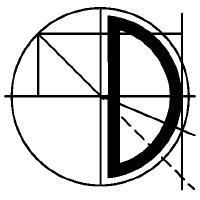,
Artificial Intelligence-Based Early Detection Of Acute Kidney Injury After Cardiac Surgery
European Journal of Cardio-Thoracic Surgery, (2022)Joint first authorship; To be published soon.
Аннотация
Objectives: This study aims to improve early detection of cardiac surgery-associated acute kidney injury using artificial intelligence-based algorithms.
Methods: Data from consecutive patients undergoing cardiac surgery between 2008 and 2018 in our institution served as the source for artificial intelligence-based modeling. Cardiac surgery-associated acute kidney injury was defined according to the Kidney Disease Improving Global Outcomes criteria. Different machine learning algorithms were trained and validated to detect cardiac surgery-associated acute kidney injury within 12 hours after surgery. Demographic characteristics, comorbidities, preoperative cardiac status, intra- and postoperative variables including creatinine and hemoglobin values were retrieved for analysis.
Results: From 7507 patients analyzed, 1699 patients (22.6 %) developed cardiac surgery-associated acute kidney injury. The ultimate detection model, 'Detect-A(K)I', recognizes cardiac surgery-associated acute kidney injury within 12 hours with an area under the curve of 88.0 %, sensitivity of 78.0 %, specificity of 78.9 %, and accuracy of 82.1 %. The optimal parameter set includes serial changes of creatinine and hemoglobin, operative emergency, bleeding-associated variables, cardiac ischemic time and cardiac function-associated variables, age, diuretics and active infection, chronic obstructive lung and peripheral vascular disease.
Conclusion: The 'Detect-A(K)I' model successfully detects cardiac surgery-associated acute kidney injury within 12 hours after surgery with the best discriminatory characteristics reported so far.


